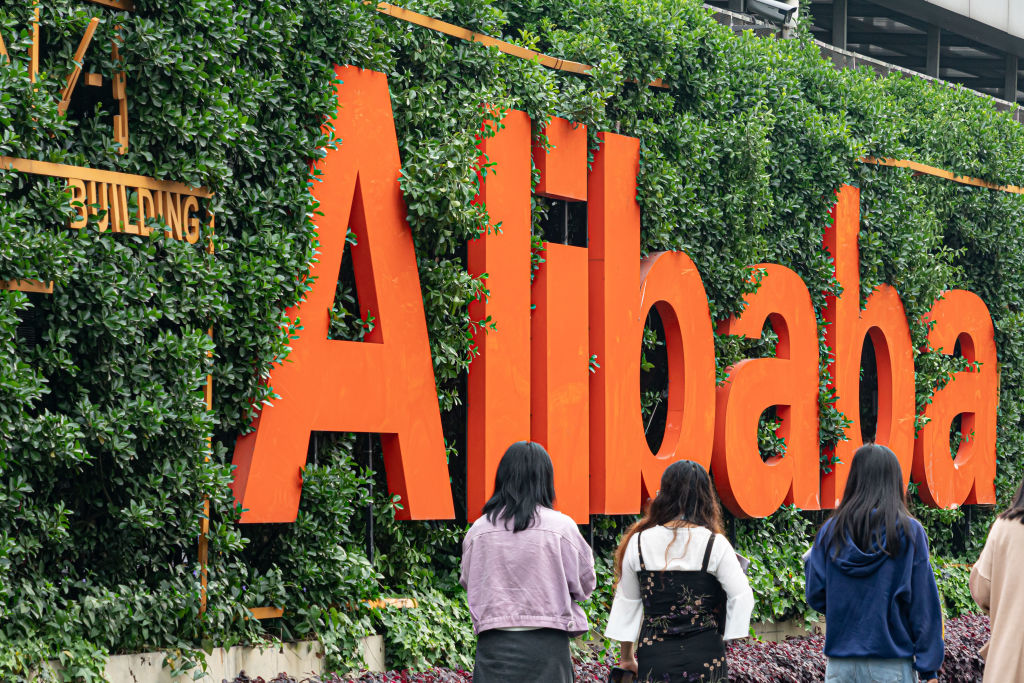Alibaba’s US$2.8 Billion Fine Isn’t its Only Problem
Chinese e-commerce company has competition hot on its heels.
Chinese regulators recently slapped a US$2.8 billion fine on Alibaba. But the company actually has a larger problem: maintaining its lead over the competition.
The Chinese e-commerce giant reported an operating loss of $1.2 billion for the quarter ending in March. The loss was mostly because Alibaba booked the $2.8 billion fine for anticompetitive behaviour in that quarter. Excluding the fine, Alibaba’s operating profit would have risen 48% from a year earlier. Regulators say the company forced merchants to sell goods exclusively on its platform instead of those of its rivals, in a practice called er xuan yi, meaning “choose one out of two.”
It was a difficult year for Alibaba regulator-wise—its finance affiliate Ant Group saw its initial public offering derailed—but it has been a great year for business. Alibaba’s e-commerce and cloud businesses benefited from the pandemic. Revenue last quarter grew 64% from a year earlier. Partly that was due to the addition of Sun Art, a supermarket chain Alibaba acquired last year, but even excluding that, its sales grew 40%.
But the company needs to invest more to fend off the competition. With the latest regulatory scrutiny, it might also need to spend more to keep merchants happy. The company’s adjusted earnings before interest, taxes, depreciation and amortization, which excludes the one-off fine, grew only 18% year-over-year—implying shrinking margins. Alibaba has been putting money into food delivery and grocery e-commerce. The latter in particular faces strong competition from others as all Chinese tech giants see this as a chance to get their hands on relatively untapped rural areas. The business is unlikely to be profitable in the near future.
Apart from usual rivals JD.com and Pinduoduo, Alibaba could face competition from Tencent. Tencent’s WeChat has increasingly become a platform for shopping through its mini-programs, basically apps within the chat app. Merchants and even e-commerce platforms like JD.com can do their businesses through these mini-programs. Tencent said in January gross merchandise sales for physical goods on mini-programs last year grew 154% from a year earlier, without indicating the actual amount.
Alibaba has managed to come out of an eventful year in a good shape. There are, however, still plenty of challenges ahead: Both regulators and the competition are hot on its tail.
Reprinted by permission of The Wall Street Journal, Copyright 2021 Dow Jones & Company. Inc. All Rights Reserved Worldwide. Original date of publication: May 14, 2021.
 Copyright 2020, Dow Jones & Company, Inc. All Rights Reserved Worldwide. LEARN MORE
Copyright 2020, Dow Jones & Company, Inc. All Rights Reserved Worldwide. LEARN MORE
This stylish family home combines a classic palette and finishes with a flexible floorplan
Just 55 minutes from Sydney, make this your creative getaway located in the majestic Hawkesbury region.
Continued stagflation and cost of living pressures are causing couples to think twice about starting a family, new data has revealed, with long term impacts expected
Australia is in the midst of a ‘baby recession’ with preliminary estimates showing the number of births in 2023 fell by more than four percent to the lowest level since 2006, according to KPMG. The consultancy firm says this reflects the impact of cost-of-living pressures on the feasibility of younger Australians starting a family.
KPMG estimates that 289,100 babies were born in 2023. This compares to 300,684 babies in 2022 and 309,996 in 2021, according to the Australian Bureau of Statistics (ABS). KPMG urban economist Terry Rawnsley said weak economic growth often leads to a reduced number of births. In 2023, ABS data shows gross domestic product (GDP) fell to 1.5 percent. Despite the population growing by 2.5 percent in 2023, GDP on a per capita basis went into negative territory, down one percent over the 12 months.
“Birth rates provide insight into long-term population growth as well as the current confidence of Australian families,” said Mr Rawnsley. “We haven’t seen such a sharp drop in births in Australia since the period of economic stagflation in the 1970s, which coincided with the initial widespread adoption of the contraceptive pill.”
Mr Rawnsley said many Australian couples delayed starting a family while the pandemic played out in 2020. The number of births fell from 305,832 in 2019 to 294,369 in 2020. Then in 2021, strong employment and vast amounts of stimulus money, along with high household savings due to lockdowns, gave couples better financial means to have a baby. This led to a rebound in births.
However, the re-opening of the global economy in 2022 led to soaring inflation. By the start of 2023, the Australian consumer price index (CPI) had risen to its highest level since 1990 at 7.8 percent per annum. By that stage, the Reserve Bank had already commenced an aggressive rate-hiking strategy to fight inflation and had raised the cash rate every month between May and December 2022.
Five more rate hikes during 2023 put further pressure on couples with mortgages and put the brakes on family formation. “This combination of the pandemic and rapid economic changes explains the spike and subsequent sharp decline in birth rates we have observed over the past four years,” Mr Rawnsley said.
The impact of high costs of living on couples’ decision to have a baby is highlighted in births data for the capital cities. KPMG estimates there were 60,860 births in Sydney in 2023, down 8.6 percent from 2019. There were 56,270 births in Melbourne, down 7.3 percent. In Perth, there were 25,020 births, down 6 percent, while in Brisbane there were 30,250 births, down 4.3 percent. Canberra was the only capital city where there was no fall in the number of births in 2023 compared to 2019.
“CPI growth in Canberra has been slightly subdued compared to that in other major cities, and the economic outlook has remained strong,” Mr Rawnsley said. “This means families have not been hurting as much as those in other capital cities, and in turn, we’ve seen a stabilisation of births in the ACT.”
This stylish family home combines a classic palette and finishes with a flexible floorplan
Just 55 minutes from Sydney, make this your creative getaway located in the majestic Hawkesbury region.






















